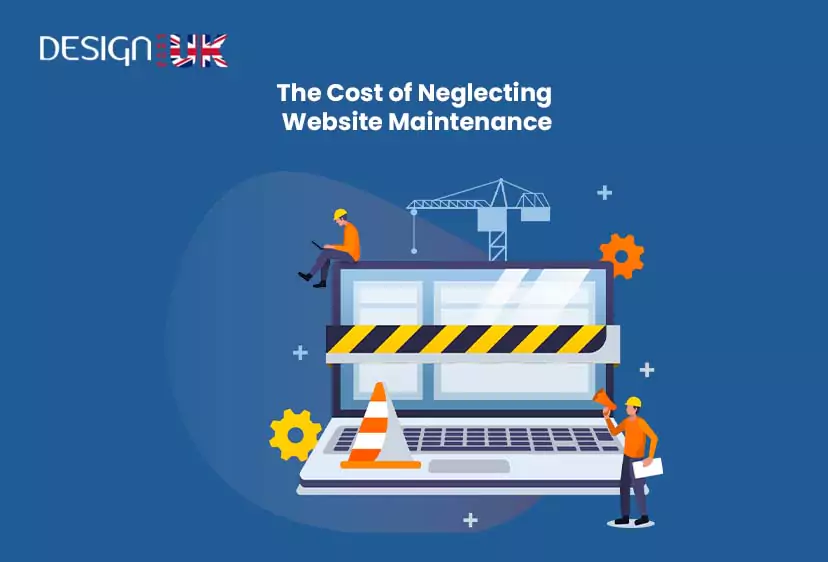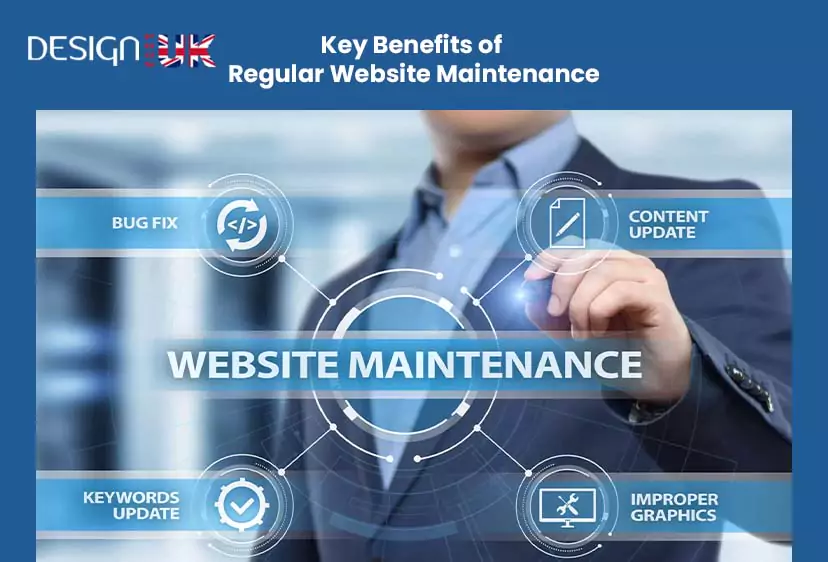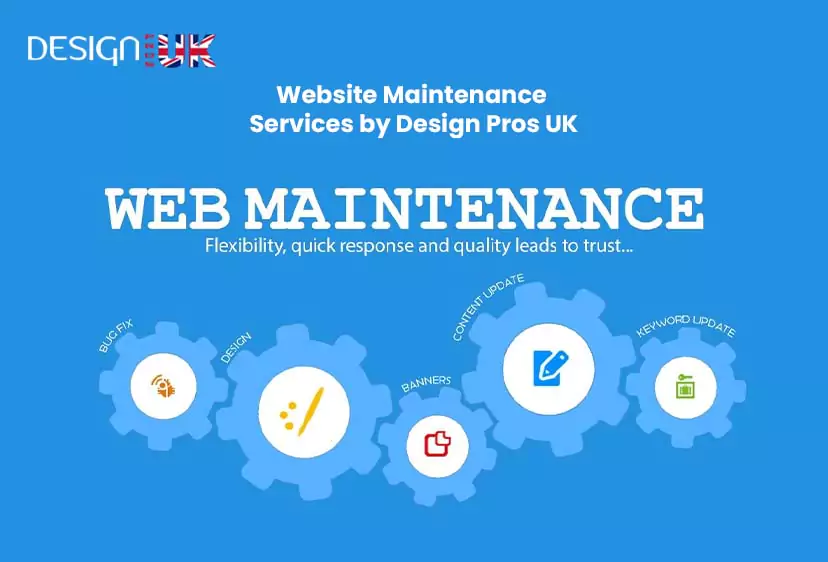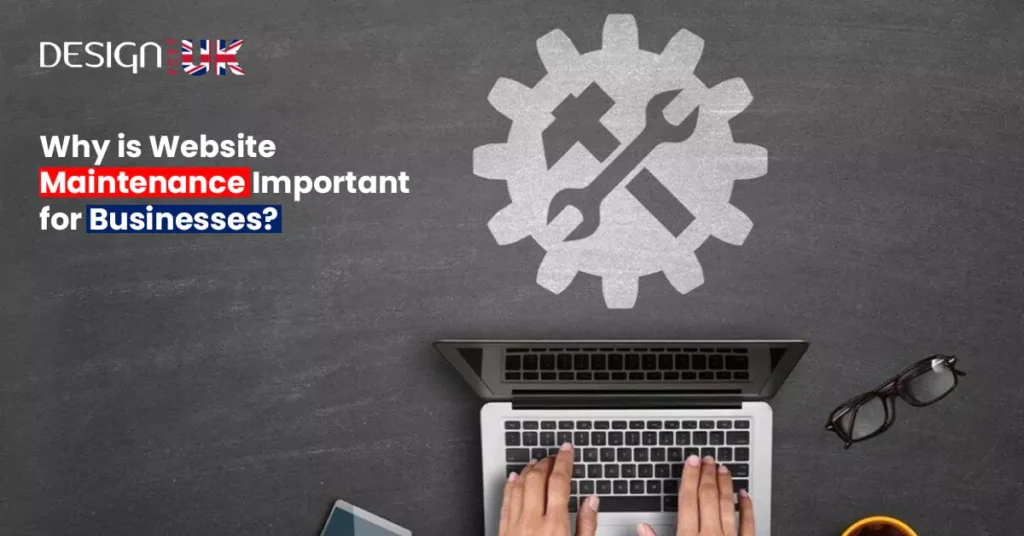Introduction
Website maintenance is an investment that pays off by ensuring security, optimising performance, enhancing user experience, improving SEO, maintaining compatibility, building brand reputation, enabling quick recovery, ensuring legal compliance, and providing a competitive advantage in the online market. As a car needs regular maintenance to remain well-running, so does your website. Neglecting website maintenance is akin to driving with bald tyres – the journey might be bumpy, frustrating, and ultimately lead to a breakdown. Taking care of a website is really important for businesses. It’s like making sure the online store or information hub works well and stays safe. Regular updates help to keep bad guys from breaking in and causing trouble. We also want the website to load fast and work smoothly, so we clean up unnecessary stuff and ensure everything is up to date. This helps people have a good experience when they visit. Search engines prefer websites that are kept fresh and updated, so that’s good for businesses, too. Making sure the website works on different devices and backing up important information are also part of taking care of it. Overall, a well-maintained website makes a business look good, keeps things running smoothly, and avoids legal problems.
Key Takeaways
– Website maintenance is a vital investment for businesses, ensuring security, performance, and overall success.
– Neglecting maintenance can lead to severe consequences, including security risks, revenue loss, and damaged reputation.
– Key benefits of regular maintenance include enhanced security, improved performance, optimal user experience, and SEO boost.
– Effective maintenance tips involve comprehensive planning, task prioritisation, content freshness, and regular updates.
– Design Pros UK offers website design and maintenance services, providing tailored security and performance solutions.
– Conclusion: Effective website maintenance is crucial for sustained success, positive user experiences, and brand competitiveness.
The Cost of Neglecting Website Maintenance
 Maintaining a website isn’t just about having an online presence – it’s a critical aspect of running a successful business. If you ignore the regular upkeep of your website, you could suffer a range of costly consequences that can negatively impact your bottom line and reputation. Here’s a closer look at the potential expenses of neglecting website maintenance.
Maintaining a website isn’t just about having an online presence – it’s a critical aspect of running a successful business. If you ignore the regular upkeep of your website, you could suffer a range of costly consequences that can negatively impact your bottom line and reputation. Here’s a closer look at the potential expenses of neglecting website maintenance.
- Security Risks: Failing to keep your website’s software updated can expose it to security vulnerabilities. The costs associated with data breaches, compromised customer information, and the subsequent efforts to recover from a security incident can be overwhelming.
- Revenue Loss from Downtime: A neglected website is more likely to experience technical glitches and downtime. This downtime translates directly into lost sales opportunities, eroding your revenue and frustrating potential customers who might turn to your competitors.
- User Experience Woes: Outdated content, slow-loading pages, and broken links create a frustrating user experience. Visitors who encounter these issues are unlikely to stay on your site, diminishing customer satisfaction and loyalty.
- SEO Ranking Decline: Search engines reward websites that are updated regularly and provide a seamless user experience. Neglecting SEO practices can decrease search engine rankings, reducing your website’s visibility and organic traffic.
- Damage to Reputation: Your website is the first interaction customers have with your brand. A poorly maintained site can convey a lack of professionalism, damaging your brand’s reputation and eroding the trust of potential customers.
- Recovery Costs: If your website falls victim to a security breach or technical failure, the costs of recovery – including data restoration, implementing security measures, and potential legal ramifications – can be substantial.
- Legal Consequences: Neglecting website maintenance may result in non-compliance with data protection and other legal regulations. This can lead to legal actions, fines, and a tarnished public image.
- Long-Term Financial Impact: Putting off routine maintenance leads to the accumulation of issues that require more extensive and costly fixes in the long run. Investing in proactive maintenance is a wise financial decision compared to reactive measures.
- Competitive Disadvantage: In a competitive online landscape, a neglected website puts your business at a disadvantage compared to competitors with up-to-date and user-friendly online platforms.
- Erosion of Customer Trust: A poorly maintained website can create doubts in customer’s minds regarding the reliability of your business. Rebuilding lost trust can be a time-consuming and challenging process.
Key Benefits of Regular Website Maintenance
 Regular website maintenance is a strategic investment that pays off in various ways. Businesses prioritising the ongoing care of their online presence reap numerous benefits contributing to their success. Here are the key advantages of embracing regular website maintenance:
Regular website maintenance is a strategic investment that pays off in various ways. Businesses prioritising the ongoing care of their online presence reap numerous benefits contributing to their success. Here are the key advantages of embracing regular website maintenance:
Enhanced Security
Updating your website’s software, plugins, and security measures significantly reduces the risk of cyber threats. A secure website safeguards sensitive data and protects your business and customers from potential breaches.
Improved Performance
Regular maintenance involves optimising code, compressing images, and cleaning up unnecessary files. This results in faster loading times, ensuring a seamless and enjoyable user experience. Fast-loading websites also contribute to better search engine rankings.
Optimal User Experience
Up-to-date content, functioning features, and a well-designed interface contribute to a positive user experience. A user-friendly website enhances customer satisfaction, encourages engagement, and fosters trust in your brand.
Search Engine Optimization (SEO) Boost
Websites that are regularly updated and provide high-quality, relevant content are favoured by search engines. By staying on top of SEO practices, you increase your website’s visibility, attract more organic traffic, and remain competitive in search engine rankings.
Compatibility Across Devices
With the diversity of devices and browsers used by consumers, ensuring your website works seamlessly across platforms is crucial. Regular maintenance addresses compatibility issues, allowing you to reach and engage a broader audience.
Proactive Issue Prevention
Identifying and resolving potential issues in routine maintenance prevents them from escalating. This proactive approach minimises the downtime risk, data loss, and other costly disruptions to your online operations.
Reliable Data Backups
Regular backups of your website’s data ensure that you can quickly recover in the event of unexpected incidents, such as server crashes or data corruption. This safeguards your information and minimises downtime, contributing to business continuity.
Positive Brand Image
Maintaining your website well reflects positively on your brand. It communicates reliability, professionalism, and a commitment to providing a positive online experience, enhancing your overall brand image and credibility.
Compliance with Regulations
Data protection and accessibility are among the legal and regulatory requirements for websites. Regular maintenance ensures that your website remains compliant and reduces the risk of legal consequences and penalties.
Cost-Efficiency
Investing in regular maintenance of your website is cost-effective in the long run. Preventing major issues through proactive upkeep is more economical than dealing with the aftermath of neglect, including expensive emergency fixes and potential revenue loss.
Tips for Effective Website Maintenance:
Maintaining a website is a continuous process that involves regular attention and strategic efforts. Here are some valuable tips for effective website maintenance:
- Develop a comprehensive plan for website maintenance, outlining tasks, schedules, and responsibilities.
- Prioritise tasks based on their impact on security, performance, and user experience.
- Keep content fresh, relevant, and engaging for visitors and search engine optimisation (SEO).
- Add new content, update existing pages, and remove outdated information regularly.
- Schedule and perform regular backups of website files and databases, storing them securely.
- Use tools for performance monitoring to identify and address speed and functionality issues.
- Optimise images, scripts, and elements to ensure fast loading times and a seamless user experience.
- Regularly update CMS, plugins, and software to patch security vulnerabilities, testing updates in a staging environment.
- Conduct security audits regularly to analyse potential vulnerabilities.
- Implement security measures like firewalls and SSL certificates to enhance protection.
- Test website compatibility on different browsers and devices to ensure a consistent user experience.
- Scan for broken links regularly and use tools or plugins to automate the link-checking process.
- Review and update meta tags, titles, and descriptions for SEO optimisation.
- Encourage user feedback, analyse it for improvement areas, and implement changes to enhance the user experience.
Website Maintenance Services by Design Pros UK
 Maintaining a standout online presence is key to success. As a website maintenance service provider in the UK, we understand the importance of it. Whether it’s about WordPress maintenance services or e-commerce website maintenance services, we are a leader in website support and maintenance that brings a wealth of expertise to ensure your digital space remains secure, engaging, and optimised. Partner with us to get the best website maintenance services where innovative design meets strategic solutions. Visit Design Pros UK to transform your website into a powerful asset for your business.
Maintaining a standout online presence is key to success. As a website maintenance service provider in the UK, we understand the importance of it. Whether it’s about WordPress maintenance services or e-commerce website maintenance services, we are a leader in website support and maintenance that brings a wealth of expertise to ensure your digital space remains secure, engaging, and optimised. Partner with us to get the best website maintenance services where innovative design meets strategic solutions. Visit Design Pros UK to transform your website into a powerful asset for your business.
Frequently Asked Questions (FAQs)
Visual storytelling is helpful in logo design to communicate the essence of your brand, including its history, beliefs, and unique selling factors. A logo can become more than a design by adding storytelling components like colour, font, and images. This makes the logo a potent weapon for emotionally engaging your audience.
In response, a logo designer turns intangible ideas into observable visual components. Designers may create a logo that genuinely embodies your company and connects with your target audience by learning about your brand’s story, values, and target market. Through cooperation, a logo design firm helps your brand’s narrative come to life visually and captivatingly.
WordPress maintenance services are crucial for ensuring the security, performance, and optimal functioning of a WordPress website. Regular updates and monitoring help prevent security vulnerabilities and enhance the overall user experience.
E-commerce website maintenance services are critical for ensuring the smooth functioning of online stores. Regular updates, security measures, and performance optimisation contribute to a seamless shopping experience and protect customer data.
A well-designed and regularly maintained website reflects professionalism and reliability, positively impacting a brand’s reputation. Users are more likely to trust and engage with a brand that invests in the upkeep of its online presence.
When selecting website maintenance services in the UK, consider factors such as expertise in WordPress, a comprehensive maintenance plan, a focus on security, positive client testimonials, and a commitment to staying abreast of industry best practices.
The frequency of website maintenance depends on factors such as the website’s complexity, the frequency of content updates, and the industry. However, a general guideline is to conduct routine maintenance tasks monthly or quarterly, with more immediate updates for security vulnerabilities.
Conclusion
In conclusion, effective website maintenance is not just a routine task but a critical investment in the sustained success of a business’s online presence. Regularly updating content, ensuring security, optimising performance, and staying compliant with legal standards are essential for fostering a positive user experience and maintaining the trust of both customers and search engines. By adhering to a comprehensive maintenance plan, businesses can not only prevent potential issues but also stay competitive, enhance their brand image, and adapt to the ever-evolving digital landscape; in a world where first impressions matter, a well-maintained website serves as a powerful tool for attracting, engaging, and retaining visitors, ultimately contributing to the overall success and growth of the business.





